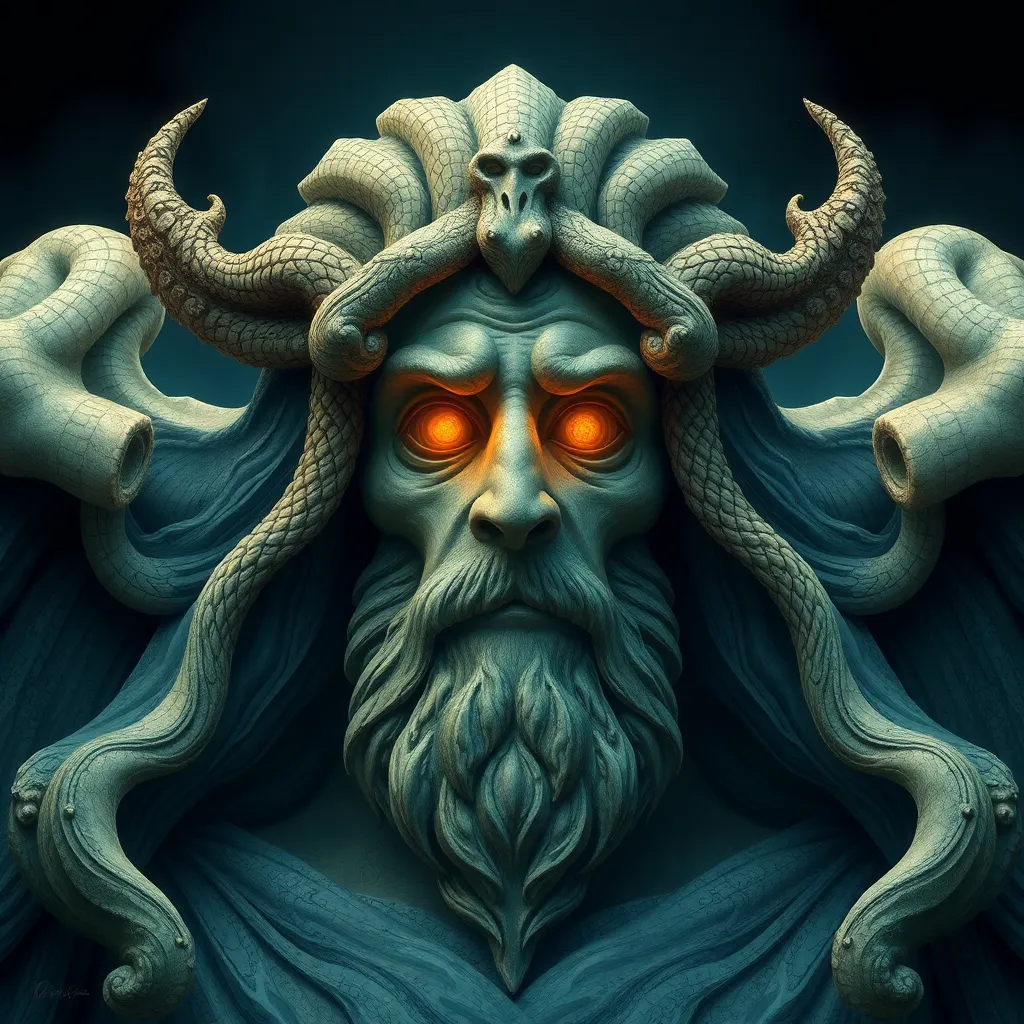The Cyclops and the Concept of the Other in Mythology
I. Introduction
The Cyclops, one of the most intriguing figures in Greek mythology, represents a unique blend of fear, fascination, and the unknown. These one-eyed giants have captured the imagination of countless generations, embodying the extremes of human experience. In this article, we will explore the Cyclops not merely as mythological beings but as embodiments of the concept of the Other, a term that signifies those who exist outside the social norms and cultural boundaries.
The concept of the Other is crucial for understanding identity, culture, and the dynamics of exclusion and alienation. By examining the Cyclops within this framework, we can gain insights into how myths reflect societal fears and prejudices, and how they shape our understanding of what it means to be human.
II. The Myth of the Cyclops
The origins of the Cyclops can be traced back to ancient Greek mythology, where they are primarily portrayed as formidable creatures with immense strength and a single eye in the center of their foreheads. The most famous Cyclops, Polyphemus, features prominently in Homer’s epic poem, “The Odyssey,” where he encounters Odysseus and his men.
- Origins: Cyclopes are said to be the offspring of Uranus (the sky) and Gaia (the earth), and they played a significant role in the creation of the world.
- Key Stories: The encounter between Odysseus and Polyphemus illustrates the theme of cunning versus brute strength.
- Characteristics: Cyclopes are often depicted as uncivilized, with a lack of social structure, which sets them apart from the heroic figures of Greek mythology.
The symbolism of the Cyclops often revolves around themes of isolation, barbarism, and the fear of the unknown. They serve as a metaphor for the darker aspects of humanity, illustrating how individuals or groups can become alienated from society.
III. Defining the Concept of the Other
The term “the Other” has its roots in various philosophical and sociological discussions. Historically, it has been used to describe those who are marginalized or viewed as different from the dominant cultural group.
- Historical Context: The Other has been a subject of interest since the Enlightenment, where it began to signify those outside the European norm.
- Philosophical Perspectives: Thinkers like Emmanuel Levinas and Jean-Paul Sartre have explored the ethical implications of recognizing the Other, emphasizing the need for empathy and understanding.
- Cultural Contexts: In social contexts, the Other can represent various identities, including racial, ethnic, and gender differences.
Understanding the Other is crucial for fostering social cohesion and addressing the fears that arise from perceived differences.
IV. The Cyclops as the Other: Isolation and Alienation
The Cyclops epitomizes the theme of isolation and alienation in mythology. Living solitary lives in remote caves, they are cut off from society and human interaction.
- Physical Isolation: The Cyclops’ physical characteristics—being large, strong, and having one eye—make them appear monstrous and alien.
- Cultural Alienation: The Cyclops often symbolizes cultural alienation; their rejection of societal norms highlights the fear of the unknown.
- Fear of the Other: The narratives surrounding Cyclopes often reflect societal fears and misunderstandings of those who are different.
In mythic narratives, the Cyclops serves as a projection of human fears regarding those who do not conform to established societal norms.
V. The Role of the Cyclops in Human Identity Formation
The Cyclops challenges human norms and values, serving as a mirror reflecting our fears and prejudices. By embodying what is considered “other,” they force society to confront its own identity.
- Challenging Norms: The Cyclops’ brute strength and lack of social structures challenge the values of civilization and order.
- Reflection of Fears: The mythological stories serve as a canvas for exploring human anxieties regarding the unknown and the different.
- Cultural Identity: The Cyclops narrative contributes to shaping cultural identity, illustrating how societies define themselves in opposition to the Other.
Through these myths, we see how the Cyclops plays a role in forming human identity by forcing us to grapple with our own definitions of normalcy and otherness.
VI. Comparative Analysis: Cyclopes in Other Cultures
Examining the Cyclops in other cultures reveals both similarities and differences in the portrayal of the Other.
- Polynesian Mythology: Similar figures exist in Polynesian myths, where giants or one-eyed beings symbolize strength and the unknown.
- Roman Interpretations: Roman adaptations of Cyclopean myths often emphasize their brutishness and lack of civility.
- Cultural Portrayals: Across cultures, the Other often embodies fears surrounding difference, highlighting universal themes in mythology.
These cross-cultural perspectives on the Other allow us to glean insights into how societies have historically responded to difference and alienation.
VII. Modern Interpretations of the Cyclops
In contemporary literature and media, the Cyclops continues to serve as a powerful symbol of otherness.
- Contemporary Literature: Modern retellings of Cyclopean myths often explore themes of isolation and acceptance.
- Relevance Today: The myth of the Cyclops remains relevant in discussions about diversity, marginalization, and the fear of the Other.
- Societal Reflections: As society grapples with issues of identity and inclusion, the Cyclops serves as a reminder of the consequences of alienation.
Through these modern interpretations, we continue to confront the complexities of identity and the concept of the Other.
VIII. Conclusion
In conclusion, the Cyclops serves as a profound embodiment of the Other in mythology. This mythological figure encapsulates themes of isolation, alienation, and the human fear of difference. By examining the Cyclops through the lens of the Other, we can better understand the enduring significance of these myths in shaping our cultural identities and addressing societal fears.
As we navigate a world that is increasingly diverse, it is crucial to embrace the lessons of the Cyclops myth. By confronting our fears and understanding the value of diversity, we can foster a more inclusive society that celebrates rather than alienates the Other.




